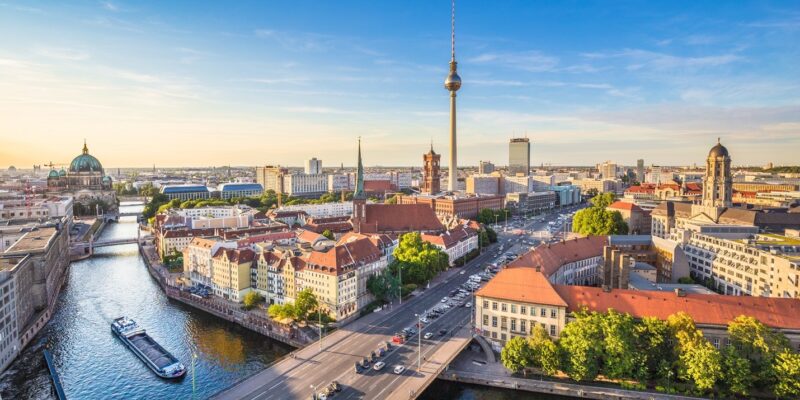Legal basis
The legal basis for compulsory licenses under German Patent Law is under Section 24 of the German Patent Act. The German Patent Act meets the requirements of the Trade-Related Aspects of Intellectual Property Rights (TRIPS) Agreement and the implementation of the Directive on the Legal Protection of Biotechnological Inventions (Directive 98/44/EC). A claim to the grant of a compulsory license may also arise from competition law provisions and Regulation (EC) No 816/2006 which is related to the manufacture of pharmaceutical products for exports to countries with public health issues.
As of March 2020, the German Government amended Section 5 of the German Infection Protection Act (Act). Under Section 5 of the Act, an invention relating to the supply of pharmaceuticals, medical devices, and products for disinfection and laboratory diagnostics shall be used in the interest of public welfare or security. The German Government enacted the Infectious Diseases Prevention and Control Act that gives the Federal Ministry of Health powers that include the ability to issue a compulsory license. The Infectious Disease Prevention and Control Act gives the government a legal basis to limit patents allowed by Section 11 of the German Patent Act. Under Section 11, a patent is not extended to acts done for experimental purposes related to the subject matter of a patented invention. The measures are only lawful as long as Germany is under a state of emergency as provided by Section 13 of the Patent Act. Section 13 provides for administrative orders to be issued by the federal government against patentees that enable the government or Any designee to use for the public welfare. This measure can be revoked upon repeal or its expiration on March 31, 2021.
Requirements for obtaining a Compulsory License
Under Section 24 of the German Patent Act, a party seeking a compulsory license must demonstrate:
- That within a reasonable period of time, they have unsuccessfully attempted to obtain permission from the proprietor of the patent to use the invention for reasonable commercial terms and conditions; and
- The public interest calls for the grant of a compulsory license
Procedure for Granting a Compulsory License
Under Section 24, the grant of a compulsory license for a patent is only permitted after a patent has been granted. The compulsory license may be granted with limitations and have attached conditions. A license seeker must be willing and able to use the invention. The duration and extent of the license is limited to the purpose for which the license was granted, and the patent owner is entitled to compensation from the party seeking the compulsory license.
The compensation for the license must be equitable and based on the circumstances of the case and the economic value of the compulsory license. If there are substantial changes in the circumstances which govern the compensation, each party is entitled to require an adjustment. If the circumstances in which the compulsory licenses were based no longer apply, the patent owner can require the withdrawal of the compulsory license.
Appeal/Review
A request for the grant of a compulsory license or the adjustments of compensation for a compulsory license is based on filing an action with the Federal Patent Court. The action needs to be directed against the patent owner or against the holder of the compulsory license. If there is an urgency, the license seeker may be permitted to use the invention on the basis of an injunction if the requirements of Section 24 of the German Patent Act are fulfilled.
Jurisprudence
Compulsory licenses are granted by statute in Federal Patent Court and are regulated under Section 24 of the German Patent Act. Additionally, under Section 85, compulsory licenses are provided for in scenarios of urgent need and public interest.
For example, in 2017, a case came before the German Federal Supreme Court, where the court found it was in the public’s interest for Merck to continuing selling its HIV drug, raltegravir. In this case, the Federal Patent Court determined that it was in the public’s safety and interest for the drug raltegravir to remain in the public for patients who use the drug since it is needed to maintain safety and quality of treatment. The German Federal Supreme Court affirmed the decision of the Patent Court and agreed that the public interest warranted the compulsory license.
Input by: Steve Zeman & Ralf Kirsch (Grünecker)
________________________
To make sure you do not miss out on regular updates from the Kluwer Patent Blog, please subscribe here.




Thank you for this interesting article. I would just add a very important point: in April 2020 the German Parliament has decided to use Section 13 of the Patentgesetz (in the “Infektionsgesetz”), which is a waiver:
“Section 13
(1) The patent shall have no effect in a case where the Federal Government orders that the invention is to be used in the interest of public welfare.”
It is contradictory in view of the last Merkel statements…
Ms. Merkel‘s position seems to be reconcilable with Section 13 of the Patent Act as patentee is entitled to a remuneration, possibly similar to a license fee:
(3) In the cases referred to in subsection (1), the proprietor of the patent shall be entitled to equitable remuneration from the Federal Republic of Germany.
According to my understanding, this would not be the case if the patents for Covid-19 vaccines were waived.